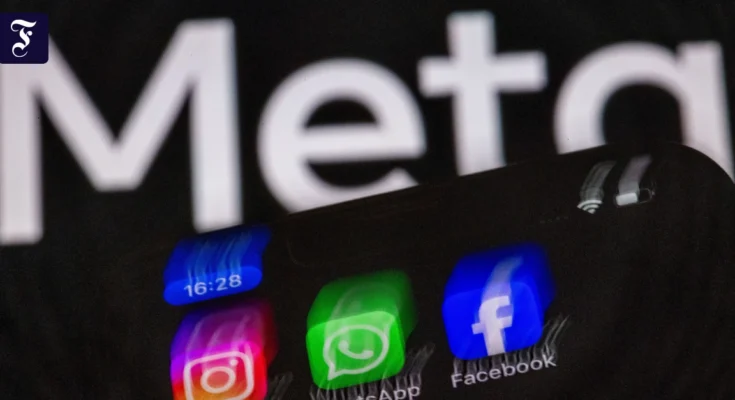Meta avoids destruction. Internet companies have now achieved complete success in antitrust disputes with the American government. The judge in charge of the case wrote in his ruling: “Meta does not have a monopoly in the relevant markets.” This means that companies do not need to be afraid of serious interference in their business. The US antitrust authority, the FTC, wants to use the legal dispute to force it to part with the Instagram and WhatsApp services it bought several years ago.
The ruling is the American tech giant’s second major success in an antitrust dispute with the US government in a short time – and even more telling. In early September, Google stepped in easily in a case that was also discussing the split. Here the judge limited himself to more lenient conditions for the company. But in this dispute, judges have previously ruled that Google is a monopolist in Internet search. In Meta’s case, the government failed at this first hurdle.
The FTC’s lawsuit against Meta was filed in late 2020, in the final days of Donald Trump’s first term as US president. The company was accused of illegally abusing its monopoly position. The strategy is to “buy or bury” new competitors. The acquisitions of Instagram in 2012 and WhatsApp in 2014 are examples of how he made acquisitions in areas he had not been successful in doing himself. The trial in this case took place in April, with CEO Mark Zuckerberg also present as a witness.
Is TikTok a competitor?
Meta categorically rejects the FTC’s allegations and denies having a dominant market position. In the lawsuit, the authorities defined the market very narrowly. He described Snapchat as its only – and far behind – direct competitor, but not other big platforms like YouTube or TikTok. For example, he argues that TikTok users are essentially distributing content to audiences they don’t know personally, whereas Instagram or Facebook are about communicating with friends and family.
The judge responsible, James Boasberg, now clearly sides with Meta. He wrote that the competitive landscape has changed significantly since the antitrust lawsuit was filed five years ago, and any boundaries between different segments of the online platform market have become blurred. Meta Services like Facebook and Instagram are “fairly interchangeable” with TikTok and YouTube; Tiktok is now Meta’s toughest rival.
Nevertheless, the FTC insists that the company is competing with “the same old rivals” as it was ten years ago, holding a monopoly in this small group and trying to maintain it through anti-competitive means. Regardless of whether Meta has had a monopoly position in the past or not: antitrust authorities have to prove that this is still the case today, and this has not happened.
Closeness to Trump
Meta was happy with the verdict. “The court decision recognizes that Meta faces stiff competition,” he said in a statement. The FTC was “extremely disappointed” and announced it would consider all options. Authorities may try to appeal.
Meta’s success should also provide hope for other tech giants under scrutiny by antitrust authorities. Amazon and Apple have also been sued for alleged anti-competitive behavior. Both cases are still in the early stages. A second case is pending against Google, which revolves around online advertising and in which, as in the other cases, the company was declared a monopolist in the first stage. Any terms still need to be decided here.
Meta has now escaped completely unscathed in his feud for now. The company is apparently holding discussions with the FTC about a possible settlement in the spring. According to a report in the Wall Street Journal, CEO Zuckerberg is said to have offered to pay the authority $450 million. However, the FTC is asking for a double-digit billion amount.
Zuckerberg also tried to establish good relations with Trump. He has announced that he will abandon existing forms of fact-checking on his platform. He also agreed to pay $25 million to settle a lawsuit with Trump over the suspension of his account after the storming of the Capitol in January 2021. Zuckerberg also recently promised Trump that he would invest at least $600 billion in the US by 2028.
Even if the judge doesn’t want to see Meta as a monopoly, the company still performs well economically. In the last fiscal quarter, the company accelerated its growth and increased its revenue by 26 percent. Meta is worth around $1.5 trillion on the stock market.



